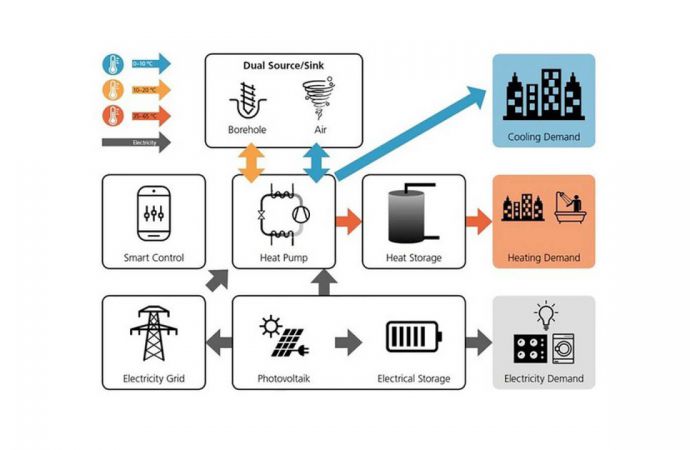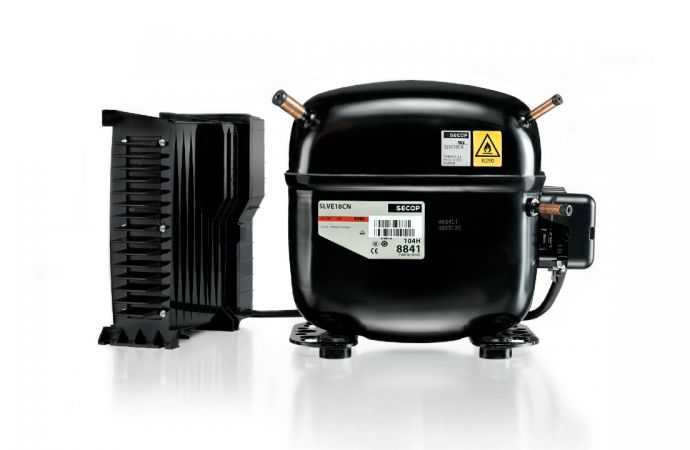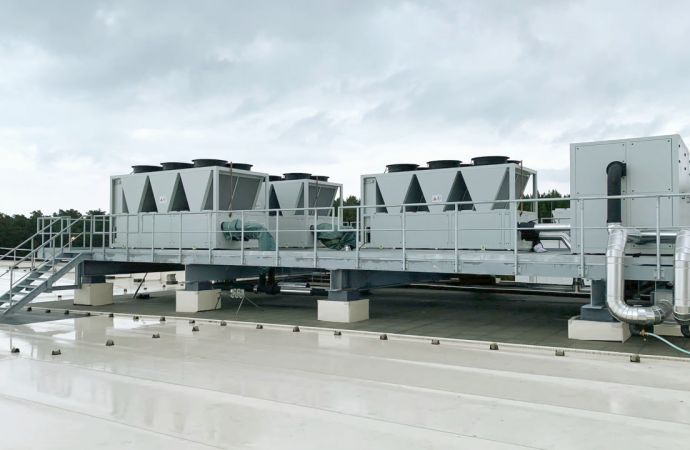The TRI-HP Project will use mainly renewable energy with installation costs 10-15% less than comparable heat pump systems.

Dual source/sink model
An EU-funded project called TRI-HP is aiming to develop and test affordable and flexible tri-generation systems, which provide heating, cooling and electricity, using natural refrigerant heat pumps.
The goal is to develop systems that can obtain up to 80% of the energy requirements from renewable sources on-site, according to the project website. A second objective is to ensure that the systems are 10-15% cheaper to install than current heat pump technologies with similar energy performance.
The project partners are looking to develop two different types of systems, utilizing two different combinations of renewable heat sources to provide the electricity for the heat pump.
The first type will be a dual source/sink heat pump system, using ground and air as the heat source and sink. This type will use propane (R290) as the refrigerant for the heat pump.
The second type will use a combination of solar energy and an ice-slurry storage tank. This system will be developed in two versions, one using CO2 as the heat pump refrigerant and one using propane.
The project will also include the development of new heat exchangers specifically for the particular refrigerants and systems, with the aim of improving the performance of the heat pumps. It will also develop two new sets of advanced controls. The controls will include a self-diagnosis algorithm to increase reliability and facilitate maintenance of the heat pumps, and an advanced energy management system based on model predictive control.
Apart from the technical solutions, the TRI-HP project is also working with social science partners to investigate and improve the acceptance of tri-generation systems, and with communication partners to disseminate the results, promoting the use and exploitation commercially.
The project currently includes 12 partners from universities, the HVAC&R industry, and SME’s in Belgium, Denmark, Germany, Norway, Spain and Switzerland. The TRI-HP project is funded by the European Union’s Horizon 2020 program. It started in March 2019 and will last for 48 months.
Related stories



